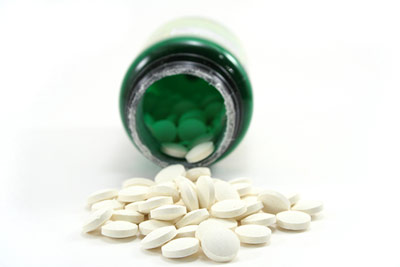 National Folic Acid Awareness Week is January 6-12, 2020 so it seems like an ideal time to highlight the importance of this nutrient.
National Folic Acid Awareness Week is January 6-12, 2020 so it seems like an ideal time to highlight the importance of this nutrient.
Folic acid, also known as vitamin B9 or folacin, is a water-soluble B vitamin that is essential for our bodies. While folate is found in foods, folic acid is the synthetic form found in manufactured vitamin supplements, but the two are often talked about interchangeably when discussing the benefits of the vitamin. As the human body can not create folic acid or folate, it is considered an essential nutrient and required from the diet through food or supplements.
Folic acid is probably best known for its use by pregnant women or women of childbearing age to prevent miscarriage and neural tube defects, such as spina bifida. But folic acid is not only needed for women in their childbearing years; it has other uses in the body that make it necessary for everybody. Folate is necessary for the body to manufacture DNA and other genetic materials, to metabolize amino acids, and for cell division.
Not consuming enough folate or folic acid can lead to folate deficiency. Folate deficiency can lead to a form of anemia. Symptoms of folate deficiency can include feeling tired, heart palpitations, shortness of breath, diarrhea, depression, glossitis, and changes in the color of the skin or hair. Folate deficiency is diagnosed through a blood test.
Bariatric patients should take note of if their vitamins contain adequate folic acid. Dr. Shillingford, MD and other bariatric surgeons specify the vitamins they recommend to their gastric sleeve, gastric bypass, and lap band patients. Folic acid is usually provided in a B Complex vitamin, but as all vitamin manufacturers are different it is most beneficial to check the labels to ensure you are taking what Dr. Shillingford, or your bariatric surgeon, recommends.
Since 1998, the US government has made it mandatory for food manufacturers to supplement folic acid into the food supply in enriched bread, flours, cornmeal, pasta, rice, and other grain products to help meet recommended dose through diet. As most post-op gastric sleeve, gastric bypass, and lap band patients avoid the majority of these food items, bariatric patients should seek them in other foods. Other sources of folate are leafy vegetables, beans and legumes, okra, asparagus, edamame, avocado, and organ meats. Because weight loss surgery patients consume foods in smaller quantities, ensuring adequate consumption of folic acid through vitamin supplementation is essential to preventing a folate deficiency.
If you have questions about your vitamin and mineral supplementation, call Dr. Shillingford’s office at (561) 483-9940 to confirm that you are taking the supplements recommended for you. Dr. Shillingford’s patients are also encouraged to attend the monthly Nutrition Support Meetings offered. Two Support Meetings are offered each month, one in person and one online. See Dr. Shillingford’s Calendar of Events for the meeting dates.



